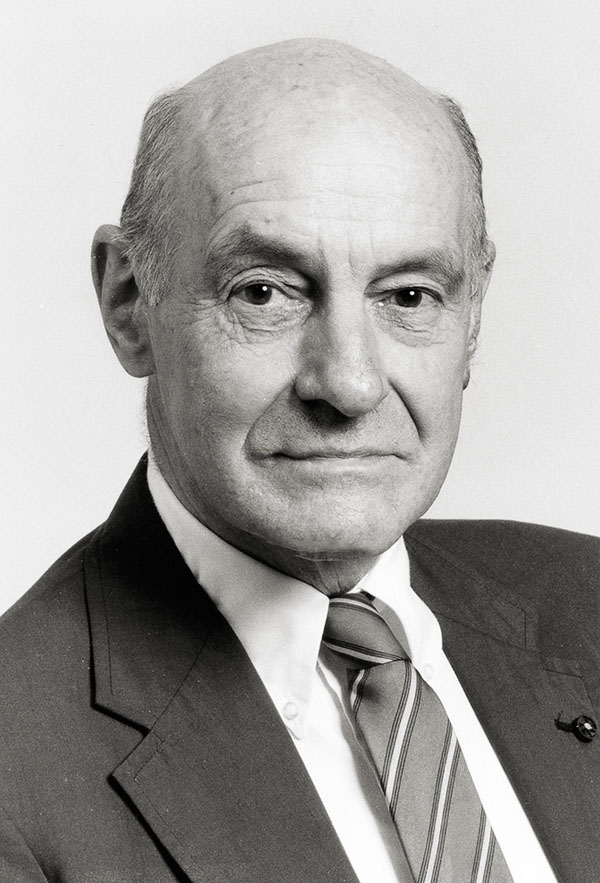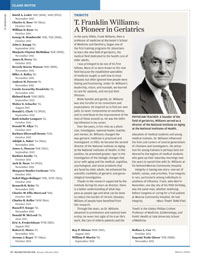In Memoriam
 PHYSICIAN TEACHER: A founder of the field of geriatrics, Williams served as a director of the National Institute on Aging
at the National Institutes of Health. (Photo: Medical Center)
PHYSICIAN TEACHER: A founder of the field of geriatrics, Williams served as a director of the National Institute on Aging
at the National Institutes of Health. (Photo: Medical Center)In the early 1980s, Frank Williams, then a professor of medicine at Rochester’s School of Medicine and Dentistry, began one of the first training programs for physicians to learn the new field of geriatrics, the medical field dedicated to the health care of older adults.
I was privileged to be one of his first fellows. Many of us were drawn to this new field because the established specialties of medicine taught us well how to treat diseases but often ignored how people were feeling and functioning. Under Dr. Williams’s leadership, vision, and example, we learned to care for patients, and not just their illnesses.
While humble and gentle, Dr. Williams was also forceful in his convictions and expectations. He inspired us to find our own path, to never compromise on excellence, and to contribute to the improvement of the lives of those around us. He was the defining influence in my career.
Over the years, in his roles as a physician, investigator, national leader, teacher, and mentor, Dr. Williams changed the way geriatric medicine is practiced and investigated. In 1983, he became the second director of the National Institute on Aging at the National Institutes of Health. In this position, he promoted greater rigor in the investigation of the biologic changes that occur with aging and the medical, cognitive, psychological, and social problems that are faced by older adults. He enhanced the scientific credibility of geriatric and gerontological investigation. Thanks to the research supported by the institute during his years as director, there is a better understanding of what happens as people age and what can be done to reduce the burden of chronic diseases. Millions of people have benefited from this research.
Through the years, as Dr. Williams advanced in prominence and national leadership, he never lost sight of his true life’s work, the care of elderly patients and the education of medical students and young medical trainees. Dr. Williams influenced the lives and careers of several generations of clinicians and investigators. His attraction for young trainees is perhaps best evidenced by the legions of medical students who gave up their Saturday mornings over the years to spend time with Dr. Williams at his beloved Monroe Community Hospital.
Integrity is having one story—one set of beliefs, values, and priorities. True integrity is rare, particularly among individuals in positions of influence. Frank, who died in November, one day shy of his 90th birthday, was the same man, whether testifying before Congress or caring for a frail patient at Monroe Community Hospital. He had integrity.
—Mary Tinetti ’84M (Flw)
Tinetti is the Gladys Phillips Crofoot Professor of Medicine, Epidemiology, and Public Health at Yale University School of Medicine.

